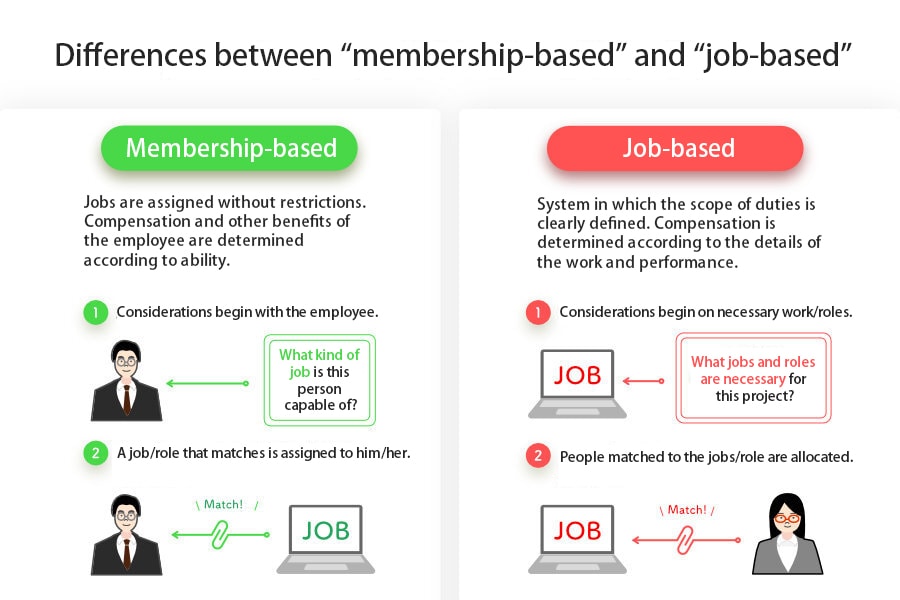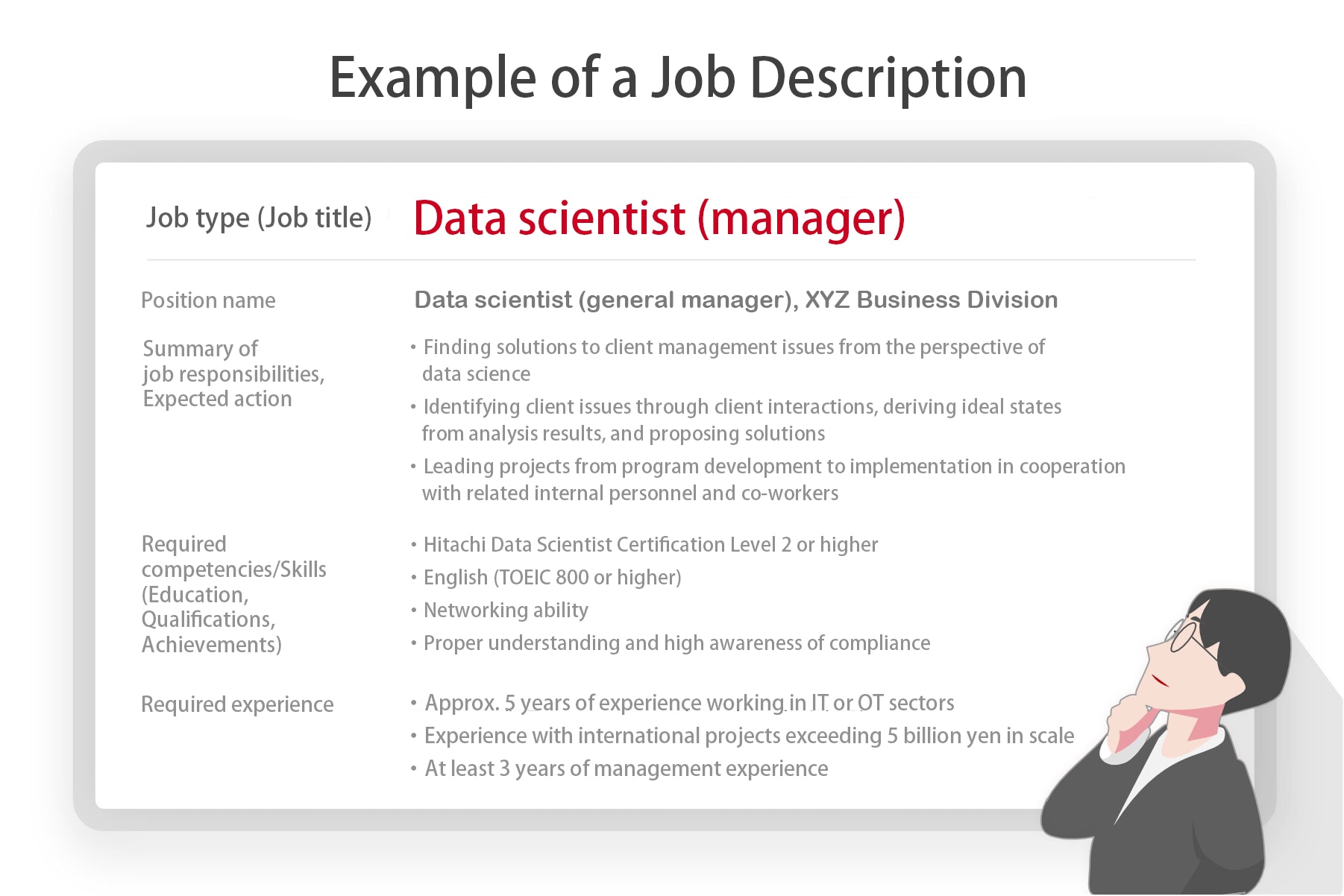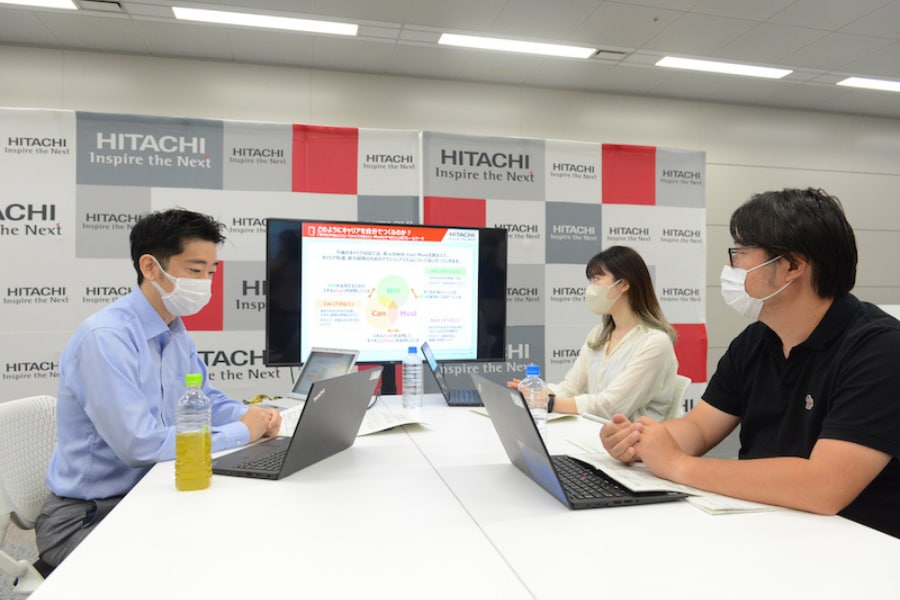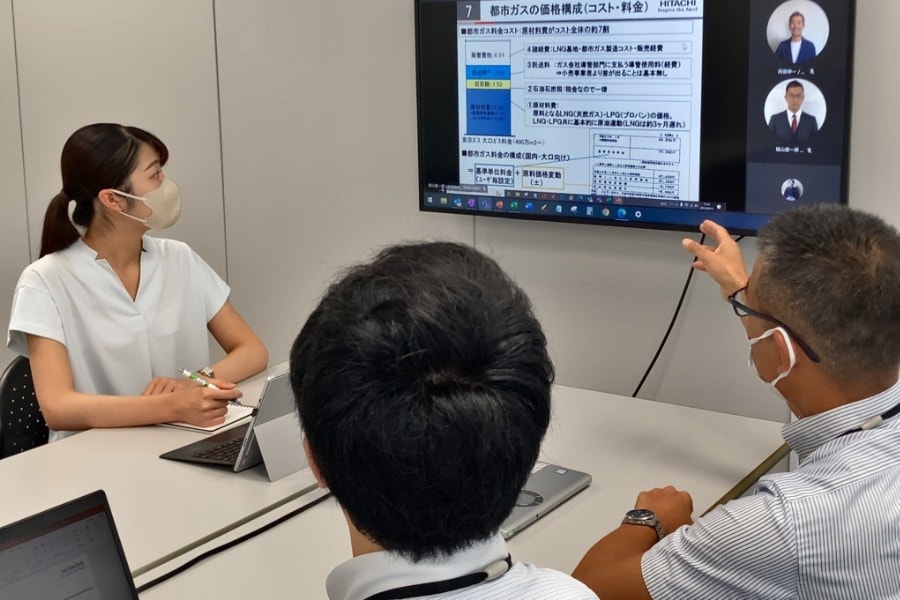Introduction to Hitachi’s "Job-based" HR management
Mar. 31, 2023
Mina Shimizu

Job-based HR management refers to an employment system that clearly defines the job scope and duties, assigns people to those tasks, and determines compensation and other benefits according to such factors as details of the tasks and status of execution. In July 2022, Hitachi, Ltd. introduced the Job Description (JD), which is the basis of job-based HR management. Hitachi has been applying this widely not only to the management class but also to general employees. This article describes this system and discusses related Hitachi initiatives.
What is job-based HR management?

In light of its global business expansion and DX (digital transformation), Hitachi is implementing job-based HR management. Yukihiro Iwata, manager of the Planning Group of Job-based HR Management Promotion Project, explains as follows:
"'Job-based' refers to a system which clearly defines the employees’ responsibilities and helps us allocate and appoint the optimal people to those jobs. This becomes the basis for wages and human resource development. In other words, the job is put first, and prioritizes 'the right person to the right place'."

Japan has traditionally focused on "membership-based" employment systems as opposed to "job-based".
Membership-based generally refers to a system that places weight on bonds between the company and its workforce. In contrast, job-based, the standard management system around the world, is characterized by strong bonds between jobs and employees and is considered more suitable for acquiring and developing human resource with high levels of expertise.
From the perspective of employees, membership-based system entrusts to people various different duties through job rotation (personnel changeups, transfers, etc.), while job-based allows for more-independent career development.
Why is “job-based” needed?

The question is: why is the introduction of job-based needed now?
Iwata cites three external factors behind this: changes in the global business environment, societal issues in Japan, and the diversification of the values and lifestyles of employees.
Regarding changes in the global business environment, the advancement of DX and other factors are stimulating cross-border, multinational business, requiring global corporations to set up management systems that are shared by each country.
Moreover, starting with the IT and digital sectors, the acquisition of talented expertise has become highly competitive both domestically and internationally. Job-based has entered the spotlight as a measure for acquiring human capital having such expertise.
The second factor, societal issues in Japan, includes such challenges as declining birthrate, aging society, and decreasing sustainability of social security. These are in turn connected to the third factor: the diversification of the values and lifestyles of employees.
According to Iwata, to achieve sustainable growth while responding to such changes in the environment, it will be essential to support a diverse work style and to put into practice "the right person to the right place," thus necessitating the introduction of job-based employment.
Iwata says, "The combined strength of diverse human resource is crucial for Hitachi to compete in the global marketplace. Building a system that integrates the diverse work styles of diverse human resource, one that allows them to perform their duties as a single team regardless of location and time zone, we must convert from membership-based to a job-based employment system."Hitachi’s action toward introducing job-based employment

With this as a backdrop, in 2021 Hitachi, Ltd. introduced JDs as the basis for job-based employment for the management class. This was expanded to include general employees in July 2022. Specifically, about 450 JDs were created which defined job tasks and responsibilities required for all job types and for each class. Based on these JDs, Hitachi plans to visualize the skills and experience required for each position.
In October 2022, Hitachi also launched the operation of the Learning Experience Platform (LXP), a platform that, as a reserve of learning content for languages and other subjects, utilizes AI to promote the improvement and brushing up of employee skills. Hitachi is also expanding internal job postings, driving the implementation of initiatives that encourage more-active employee career development.

Iwata describes this series of measures as follows:
"Our aim is to encourage employees to develop their careers independently through the visualization of duty requirements and through continuous dialogue with superiors about their careers. Not only system building but also changes to employee mindsets and behavior will be indispensable to making a reality of job-based HR management. With this in mind, we are currently taking a multifaceted approach to motivating our employees to take charge of their career development."
The shift in compensation and benefits system for the management class was completed in 2014. Going forward, Hitachi will work on configuring such a system for general employees that is based on job-based HR management.
Applying job-based to hiring new graduates and internships

Hitachi is also pursuing job-based employment by job type in its new graduate hiring activities. In FY2020, targeting specific job types in AI, digital, and other few sectors, Hitachi started taking into account the expertise, experience, and duties of new hires to determine their individual compensation and benefits instead of implementing uniform starting salaries based on academic background. Hitachi planed in FY2022 to apply the job-based concept to the hiring of 500 technical and 30 administrative employees.
In FY2021, Hitachi also began a full-scale job-based internship program as an initiative to strengthen the job-based hiring of new graduates. This program accepts students for internships that have clearly defined work to be experienced at the workplace and clearly specified skill requirements.
Iwata noted that, "We have already switched over the hiring of new graduates to a job-based system, just excluding some administrative job types. New employees now enter the company with their job duties almost fixed. And instead of treating them uniformly as new hires, we conduct individualized management that considers each individual’s expertise and career orientations.”
Hitachi’s policy to successively introduce job-based HR management will be expanded further to group companies in Japan.



